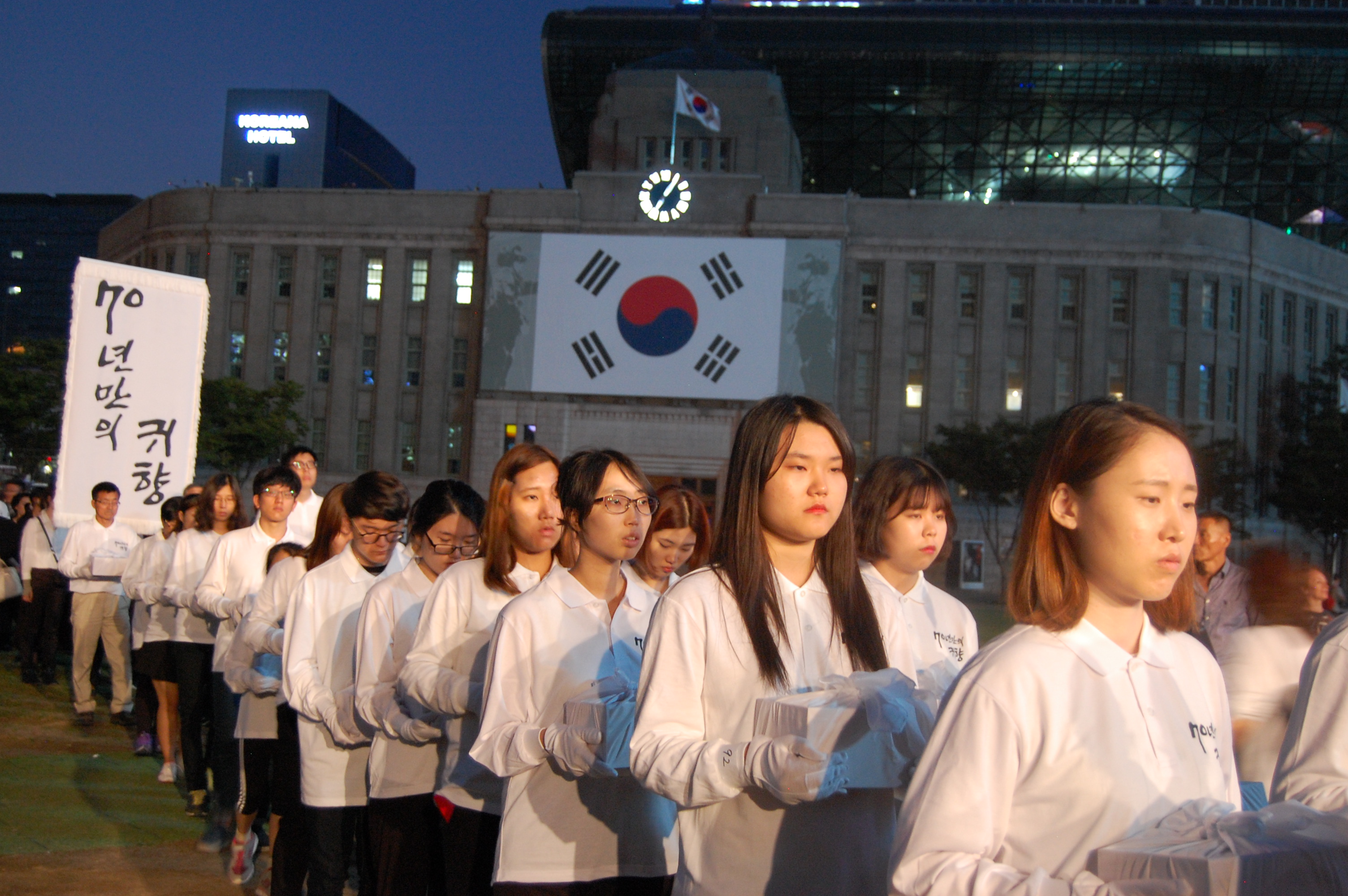On Sept. 18, the remains of 115 Koreans forced to labor in Hokkaido in the 1930s and '40s were finally returned to South Korea, 70 years after the end of World War II. The news went largely unreported in Japan, which was preoccupied with the progress of new security laws loosening postwar restrictions on the country's armed forces. The legislation was enacted just hours after a boat carrying the remains docked at Busan.
The repatriation was the culmination of years of work by civic groups in both South Korea and Japan united under the umbrella of the Committee for the Commemoration and Return of Forced Laborers in Hokkaido, which planned the 10-day trip tracing the 3,500-km route the laborers were forced to take generations ago. It was the largest-scale repatriation operation yet involving wartime remains from Hokkaido.
The first step toward the repatriation came in December 2004, at a bilateral summit between Roh Moo-hyun, then the South Korean president, and the Japanese prime minister at the time, Junichiro Koizumi. However, relations between Tokyo and Seoul have since soured amid territorial and historical disputes, leaving wartime labor issues — from the return of remains to unpaid wages and compensation — in limbo. This left Korean civic groups facing a dilemma: Should they wait for an unequivocal apology from Japan for its wartime actions before engaging or prioritize the return of the remains to their homeland as quickly as possible?




















With your current subscription plan you can comment on stories. However, before writing your first comment, please create a display name in the Profile section of your subscriber account page.